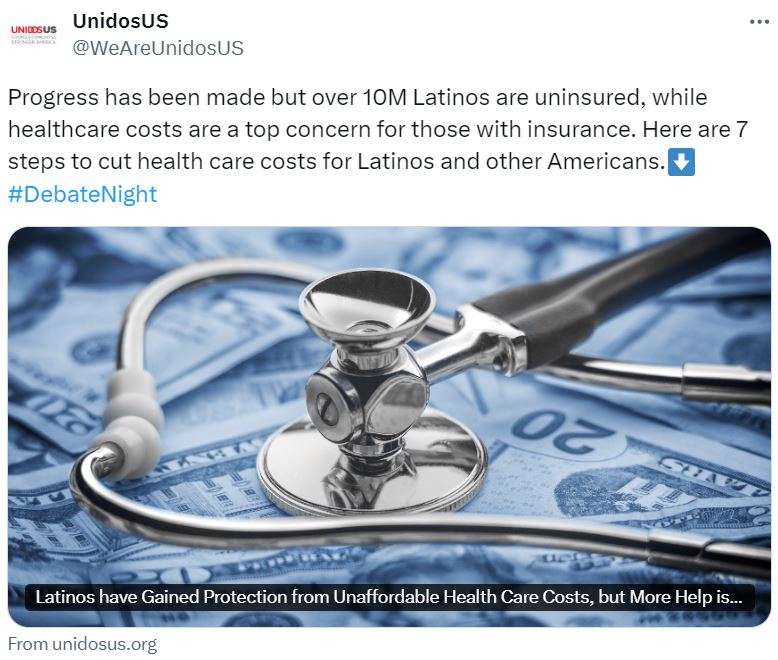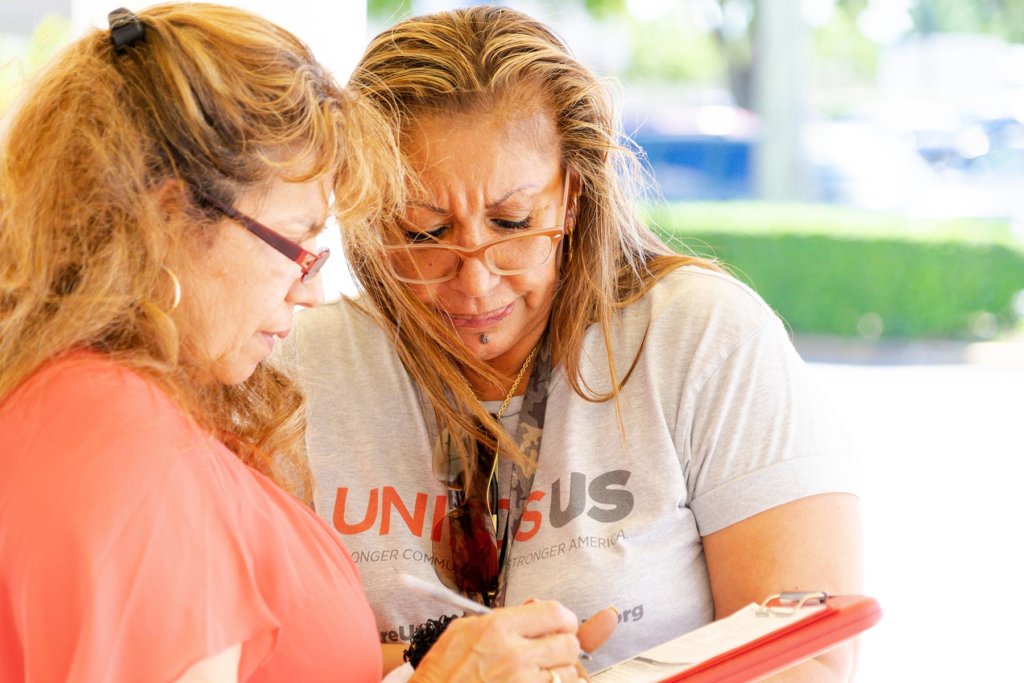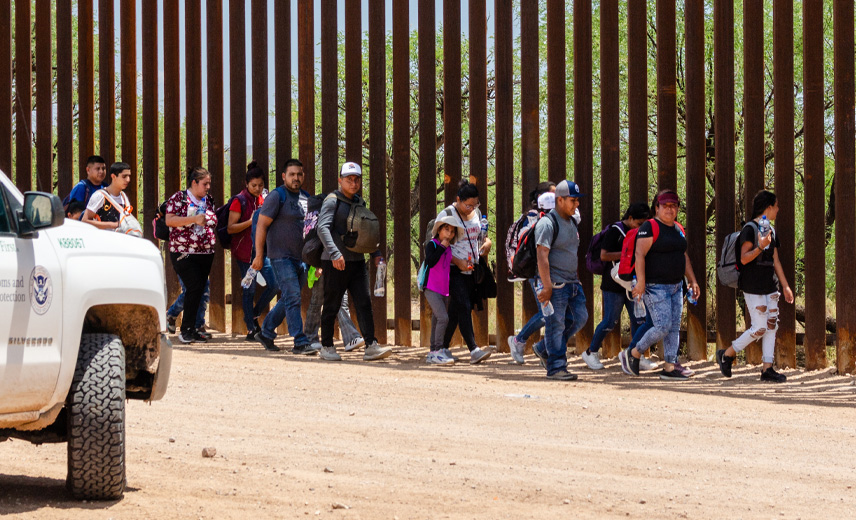Now that the Harris-Trump Debate is Behind Us, Here’s What Candidates Need to Focus on to Court Latino Voters
The second, and possibly the last presidential debate is behind us and Election Day is less than seven weeks away. We know Hispanic voters will be decisive this election, yet outreach to them remains low. For candidates to earn the support of these voters, they should redouble their outreach efforts and state clearly their positions on the issues that matter most to Latinos. Based on the insights from our most recent polling, here are the issues that the candidates should focus on when courting the Latino vote.
At the presidential debate between Vice President Kamala Harris and former President Donald J. Trump, and throughout this campaign, the candidates are presenting two visions of America. Fundamentally, however, the decisions made by Latino voters will come down to how meaningfully the candidates are engaging with these voters and how they are addressing the core issues that matter to our community.
As shown by our latest survey of 3,000 Latino voters across the country, Hispanic voters’ top five priorities are dominated by cost-of-living issues — inflation, wages, housing and health care costs — with immigration and gun violence tied at number five.
What is important to Latino voters
Specifically, our polling released on September 4, found that:
Four of the top five priorities for Hispanic voters continue to be driven by pocketbook issues:
Inflation/cost of living (59%), wages, housing (31%) and health care costs (25%).
Housing first reached the top five in our November 2023 poll and is now a top issue across all states.
Housing challenges and opportunities
Housing affordability has been a rising issue for Latino voters, as a driver behind concerns about the economy, and emerging as a top five national priority in our November 2023 poll, and is now a top issue across all the states we polled. We have long known that access to homeownership is a critical path towards building generational wealth and have advocated to break down the barriers that Latinos face in buying a home. This impacts their lifelong earnings—Latino median household wealth stands at $49,000, compared to $250,000 for white households.
Today, 48% of Latinos report difficulty in affording the rising cost of rent and mortgages. Approximately 62% of responders complain about the lack of available, affordable housing.
At the same time there is tremendous opportunity to spur Latino homeownership growth to benefit all. By 2040, 70% of net new homeowners will be Latino. That is why in 2023 we launched our HOME Initiative, seeking to create 4 million new Latino homeowners by 2030.
It’s time for candidates to support increased investment into the Latino community, including through expanding homeownership pathways.
Keep up with the latest from UnidosUS
Sign up for the weekly UnidosUS Action Network newsletter delivered every Thursday.
Bringing down health care costs
Health care costs continue to be a key pocketbook concern for Latino voters. While the Affordable Care Act and the Inflation Reduction Act helped 9 million Latinos secure health insurance, 10 million members of our community remain uninsured.
In addition, nearly 4 million Latinos with health benefits face high-deductible charges, with families having to pay at least $2,800 to access basic care and more than 1 million Latinos averaging deductibles over $5,000.
More than half of uninsured Latinos are eligible for but not enrolled in Medicaid or ACA Marketplace plans. Through actively supporting enrollment and ending arbitrary barriers that deny healthcare to millions, we can lower the number of uninsured individuals and give millions greater opportunities to live healthy lives.
For immigration policies that are firm, fair, free of cruelty
- Immigration and crime/gun violence were tied as top five priority in our latest polling, with 24% of responders ranking either issue as one of their top three priorities.
On immigration, Latino voters know the difference between those who mean us harm and those who are contributing to the fabric of our nation — their top priorities are relief for the long-residing undocumented population and cracking down on human smugglers and drug traffickers. Worries about crime/gun violence are driven by concerns about easy access to guns.
Defense of reproductive rights
- By a 71% to 21% margin, Latinos consistently oppose making abortion illegal or taking that decision away from women, no matter their own personal beliefs.
The views of Latino voters in our polls have been consistent in supporting abortion access, particularly since the Supreme Court’s 2022 overturning of Roe v. Wade. These voters have expressed their feeling that this is a decision that must be left up to each individual, despite their own personal beliefs about abortion.
Latinas are the largest group affected by abortion restrictions, especially in Florida, Texas and Arizona, home to nearly one-third of all reproductive-age Latinas. Access to reproductive care is a right, one that we must uphold and protect.
How do Hispanic voters feel about this election?
Most Latino voters are eager to cast their vote, with a majority (61%) saying they plan to vote early or by mail. A young community, every election cycle will see a significant number of new Latino voters. This year, 1 in 5 Latinos will be voting in their first presidential election, part of the 37% of the Hispanic electorate that is new since the 2016 election presidential election. And what’s clear from our polling is that many in this cohort are still forming their opinions about candidates and parties. For example, though voters say Democrats are more trusted than Republicans on priority issues, more than a quarter of Latino voters do not see either as their champion: when asked which party would be better at addressing their priority issue, 28% said neither, both or don’t know.
Yet, only 23% of Latino voters say they have heard from Democrats and only 16% from Republicans. With the election less than two months away, and a majority of Hispanics planning to vote ahead of election day, the clock is ticking for candidates who want to win the support of these voters.
Meaningful outreach remains essential
The above shows a clear opportunity for the political parties and candidates to ramp up their outreach to Latino voters. Over the past two decades, we’ve registered over a million voters, educated them about the issues at stake, helped them get to the polls, and fought to ensure that the path to the voting booth remains unimpeded to all eligible voters. We know that culturally competent engagement leads to participation. Hispanic voters will be decisive this November, and given razor-thin margins we are seeing in polls around the country, this will be the case not just in places like Arizona or Nevada, but could be also in Georgia, Pennsylvania, and Michigan, among others. Beyond the presidential ticket, that influence will also be felt in the battle for control of Congress, and myriad state and local races.
At UnidosUS, we have repeatedly said that candidates matter, their positions matter, and meaningful outreach is essential. So, this is a wake-up call for the campaigns and candidates: to win over the support of this decisive electorate, they need to redouble their efforts to engage our community and make their solutions to their top concerns clear.




